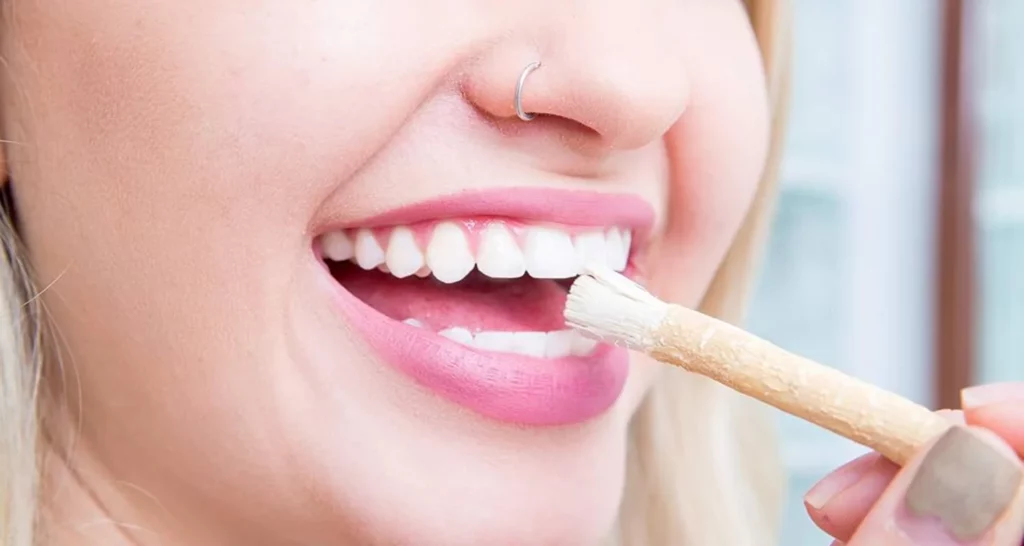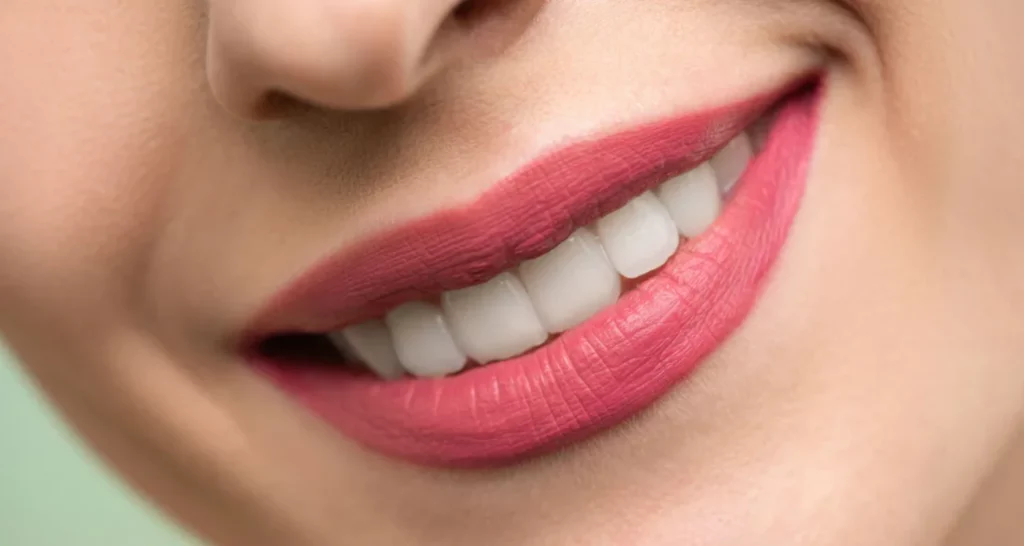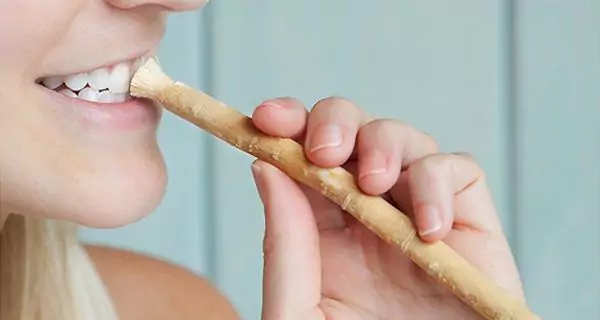Last Updated on: 13th December 2025, 06:26 am
Neem is a natural ally in oral hygiene. Its antibacterial, anti-inflammatory, and analgesic properties help fight cavities, prevent gum disease, reduce plaque, whiten teeth, and maintain fresh breath, making it a safe and effective option for dental care when used correctly.
As everybody knows, brushing and flossing are the basics of dental care. But did you know that natural methods can also support oral hygiene?
Natural remedies used for centuries in Ayurvedic medicine have become very popular in recent years to improve oral health. One of the most recognized is neem, a plant valued for its antibacterial, anti-inflammatory, and pain-relieving properties.
In this article, we will explain the role of neem in dental care, its main benefits, and how to use it safely at home to keep your teeth and gums healthy.
What is neem?
Neem, often called “the village pharmacy”, is a medicinal plant that has been used for centuries in India and other countries for oral health.
The interesting point about this plant is that all its parts have health benefits, including the leaves, seeds, bark, flowers, roots, and fruit.
Its main compounds, nimbidin and azadirachtin, give it:
- antibacterial properties to fight germs
- anti-inflammatory effects to reduce pain and swelling
- antioxidant benefits to protect oral tissues
People use neem twigs as natural toothbrushes, neem powder to brush teeth, and neem mouthwash to improve their oral hygiene. Daily use helps prevent cavities, plaque, and gum disease.
How does neem support oral health?
Neem works in many ways to keep your mouth healthy. Its natural compounds fight bacteria, reduce inflammation, prevent cavities, and improve overall oral hygiene. Let’s see all the benefits of neem in dental care.
How does neem fight bacteria and prevent cavities?
Neem targets harmful bacteria like Streptococcus mutans and S. salivarius, the main causes of cavities. It also:
- prevents bacteria from forming plaque and biofilms.
- reduces acid production that erodes enamel.
- supports cleaner teeth and a natural reduction of stains.
Can neem reduce inflammation and support gum health?
Neem helps reduce swelling and pain in the gums. It can:
- heal mouth ulcers and canker sores
- reduce discomfort from minor oral infections
- support faster healing of wounds in the mouth
- support healthier gums and may lower the risk of gingivitis and periodontitis.
Does neem relieve tooth pain?
Neem oil acts like a natural pain reliever. It can:
- reduce toothache discomfort
- calm inflammation and gum irritation
- support the healing of oral tissues
How does neem freshen breath?
Neem eliminates odor-causing bacteria when used as:
- chewing neem leaves.
- neem-based mouthwash.
Usage helps maintain fresh breath throughout the day.
Can neem fight oral fungi?
Neem is effective against fungi like Candida albicans:
- helping prevent oral infections
- supporting a healthy balance of oral microbiota.
Neem provides complete support for oral health, everything just in one natural plant. It fights bacteria, reduces inflammation, prevents cavities, soothes pain, and freshens breath, offering a safe, natural, and effective way to maintain healthy teeth and gums every day.
Are there any risks or side effects?
Neem is natural, but some forms and uses carry potential risks. Knowing these helps you avoid potential harm.
- Toxicity in large doses: Neem oil or extracts can harm the liver and kidneys if taken in high doses or for a long time.
- Infants and young children: Oral consumption can cause severe poisoning.
- Possible side effects in adults: Mild allergic reactions, mouth irritation, or stomach discomfort may occur.
- Limitations: Neem sticks or products cannot replace professional dental care.
Understanding the risks ensures that neem can be used safely as part of oral hygiene.
What are the precautions when using neem?
Taking simple precautions allows adults and children to use neem safely for dental care.
- Children: Only use neem under professional guidance; avoid oral intake in infants.
- Pregnancy and breastfeeding: Neem should be avoided.
- Medical conditions: People with autoimmune diseases, fertility concerns, or scheduled surgery should not use neem.
- Long-term use: Avoid excessive or prolonged consumption to protect liver and kidney health.
- Professional advice: Always consult a dentist before incorporating neem into your oral care routine.
Following these precautions helps maximize the benefits of neem while minimizing potential harm.
How can I use neem at home for dental care?
Neem can be used in simple ways at home to support oral hygiene. If you’re planning to use the plant, we offer some ideas.
How do I make a toothbrush with neem twigs?
- Select a fresh neem twig, 15–20 cm long.
- Wash it thoroughly and peel 5 cm of bark from one end.
- Chew the peeled end until it forms bristles.
- Use as a natural toothbrush, no toothpaste needed.
This traditional method helps prevent gum disease and whiten teeth naturally.
How can I make neem mouthwash at home?
- Boil a teaspoon of neem leaves with baking soda in 500 ml of water.
- Let the mixture cool, strain, and store it in a bottle.
- Rinse your mouth with 30 ml after meals.
Alternative method: boil neem leaves in water until the volume reduces to a quarter and use it as a gargle for fresh breath and teeth whitening.
Can I make neem toothpaste at home?
- Grind neem leaves into a paste; add a few drops of water if needed.
- Apply this paste to your toothbrush like regular toothpaste.
- Optional: Mix a drop of neem oil with regular toothpaste for added antibacterial and antifungal effects.
- Chewing fresh neem leaves can also help remove plaque and tartar, addressing the root causes of bad breath.
These easy, natural methods let you incorporate neem into your daily routine. Next, let’s explore the best neem-based products available to make oral care even simpler and more effective.
Where can I find neem products for dental care?
Neem is available in many ready-to-use forms for oral hygiene. Choosing certified, high-quality products ensures safety and effectiveness.
You can buy neem products in:
- health food stores and herbal shops
- specialized pharmacies
- online stores like Amazon or Ayurvedic shops
Always check for certified and high-quality products to ensure they are safe and effective.
What specific neem products can I use?
Here are some popular and effective neem-based dental products to use in dental care:
- Himalaya Botanique Neem Toothpaste: combines neem extract with other natural ingredients to protect teeth and gums. Helps prevent cavities, reduces plaque, and keeps breath fresh. Ideal for daily use.
- TheraNeem Neem Therape Toothpaste: uses pure neem extract with mint to protect sensitive gums. Fights bacteria, prevents inflammation, and promotes cleaner, healthier teeth.
- Auromere Ayurvedic Mouthwash: an Ayurvedic mouthwash with neem and natural herbs. Helps freshen breath, reduce bacteria, and maintain oral hygiene naturally, complementing daily brushing.
These ready-to-use neem products make it easy to include it in dental care safely and effectively for your health.
Can neem really improve my oral health?
Yes! Neem in dental care is a natural way to support a healthy mouth and fresh breath. It’s simple to use and can become a small but powerful part of your daily routine.
Adding neem to your oral care habits will help keep your teeth and gums healthy. It’s safe for most adults;with a little guidance, it can be a natural boost for anyone looking for cleaner and healthier teeth.
Frequently Asked Questions
Is neem better than chemical mouthwashes?
Can neem replace toothpaste?
Is neem safe for children?
How long does it take to see results with neem?
Does neem help with gum inflammation?
Voice and Search (Q&A)
Is neem safe for daily oral care?
For most adults, neem in dental care is safe. Use it regularly, but consult a dentist for children, pregnant women, or people with health conditions.
Where can I buy neem for dental care?
Neem products are available in health stores, pharmacies, and online as toothpaste, mouthwash, oils, or chewing sticks.
Can neem improve breath naturally?
Yes, neem kills odor-causing bacteria, helping your mouth feel clean and fresh without chemical products.
Share
References
1. Hallal, F. (2021, May 28). What is neem extract? Benefits, uses, risks, and side effects. Healthline. https://www.healthline.com/nutrition/neem
2. Naveed, N., Murthykumar, K., Soundarajan, S., & Srinivasan, S. (2014, September 29). The use of neem in oral health. https://rjptonline.org/HTMLPaper.aspx?Journal=Research%20Journal%20of%20Pharmacy%20and%20Technology;PID=2014-7-9-14
3. Pai, M., Acharya, L. D., & Udupa, N. (2003b). Evaluation of antiplaque activity of Azadirachta indica leaf extract gel—a 6-week clinical study. Journal of Ethnopharmacology, 90(1), 99–103. https://doi.org/10.1016/j.jep.2003.09.035
4. WebMD. (n. d). Neem: Uses, Side Effects, and More. https://www.webmd.com/vitamins/ai/ingredientmono-577/neem
5. Wylie, M. R., & Merrell, D. S. (2022). The Antimicrobial Potential of the Neem Tree Azadirachta indica. Frontiers in Pharmacology, 13. https://doi.org/10.3389/fphar.2022.891535
-
Dr. Yeidy Carolina Mesa [Author]
DDS Yeidy Carolina Mesa Passionate Dentist | Advocate for Accessible Oral Health Education Graduating from Universidad CES in 2022, I am a dedicated general dentist with a lifelong passion for helping others and making a meaningful impact in the world. My journey into dentistry began at the age of 7, inspired by my own experience with braces and overcoming a fear of the dentist. This personal journey shaped my mission to help patients conquer their own dental anxieties and embrace a healthier,...
View all posts
-
Nayibe Cubillos M. [Medical Reviewer]
Pharmaceutical Chemestry |Pharmaceutical Process Management | Pharmaceutical Care | Pharmaceutical Services Audit | Pharmaceutical Services Process Consulting | Content Project Manager | SEO Knowledge | Content Writer | Leadership | Scrum Master
View all posts
A healthcare writer with a solid background in pharmaceutical chemistry and a thorough understanding of Colombian regulatory processes and comprehensive sector management, she has significant experience coordinating and leading multidisciplina...





















